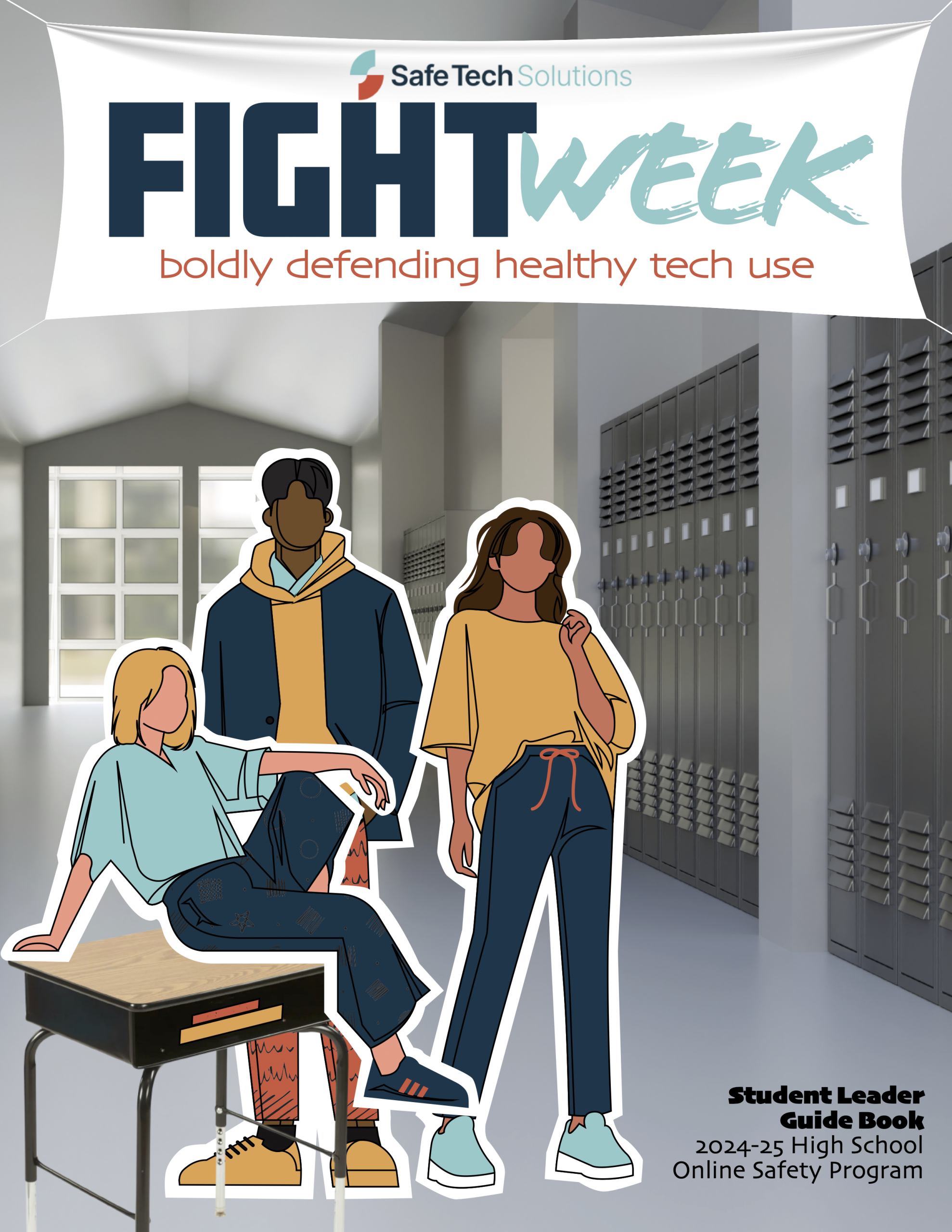Fight Week
Fight Week is a positive week-long program, led by students, that educates and energizes students to champion safe media use for themselves and others.
What is FIGHT Week?

Why FIGHT Week?
Teens have a tough battle when it comes to technology. Algorithms keep them scrolling and dangerous content is all too easy to access. Predators can access and target the most vulnerable. It’s clear that our response can’t be passive. Youth today need to be fighters.
We embolden students to do what is right as they fight against the many dangers and pitfalls of technology. We invite them to:
- Defend the dignity of themselves and others
- Not believe everything they see online
- Think twice before clicking
- Reject giving in to threats
- Promote and protect their own mental health
How it Works
The first day of the week begins with an assembly documentary. On each of the following days, student leaders present a morning announcement introducing a daily meaningful message, which is reinforced through classroom discussions and engaging activities.
The Daily Topics are:
- What’s the Impact?: How do my choices online affect myself and others?
- Think Twice: Is there more here than meets the eye? Is it safe? Who is behind this content? Not everything I see online is as it appears.
- Talk It Out: Identify safe, helpful people you can reach out to for support and guidance.
- Not for Sale: See people as real human beings with feelings and reject objectification.
- Lead the Fight: Students can take action to protect themselves, make informed decisions, and act in kindness towards others.
| Administrators | Teachers | Student Leaders |
|---|---|---|
| Oversee student leaders’ participation | Facilitate a 15-20 minute pre-scripted classroom discussion each day. | Discuss students’ needs and available resources. |
| Facilitate school-wide documentary |
Present morning announcement. |
|
| Email pre-scripted letters to teachers and parents | Plan lunch time activities. | |
| Distribute prizes for challenges. |

